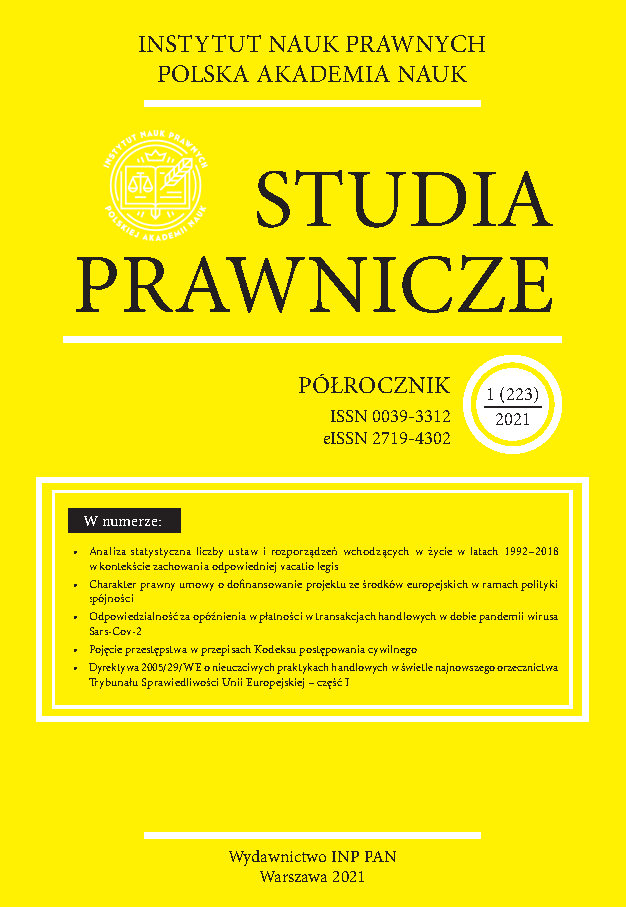Status prawny sekt destrukcyjnych oraz nowych ruchów religijnych działających na obszarze Polski
The legal status of destructive sects and new religious movements in Poland
Author(s): Celina M. MasekSubject(s): Law, Constitution, Jurisprudence
Published by: Instytut Nauk Prawnych PAN
Keywords: sect; legal status; new religious movements; religion; religious association; regulation; institutions; authorities
Summary/Abstract: Since the beginning of the 90’s there have been strong emotions associated with the emergence of many groups called cults in Poland. These groups are accused of illicit and unethical methods to recruit new members and their psychological dependence, resulting in blind obedience to leaders. Sects, carrying out their activities in the form of various types of religious formations, religious associations, churches and other religious organizations, brought to life after 1989 in Poland, operate on the basis of three acts, which include: 1. The Constitution of the Republic of Poland of 2 April 1997 ; 2. The Act on Guarantees of freedom of conscience and religion of 17 May 1989; 3. Act of April 7, 1989 r.- Law on Associations. Given the range of opinions and concerns regarding the issue of regulation of sects in Poland this question , posed in particular by the lawyer, of the legal status of the activities of religious sects , and in a broader aspect of their place in the modern world, seems to be reasonable, what is confirmed by the media , but mostly by the facts of the activities of these groups in society. As for the international standards, nowadays there are more and more information about the negative effects of the activity of sects throughout the world, what raised interest of social institutions and the authorities of individual countries in this subject. It encouraged the authorities to create an overall analysis to assess the degree of harmfulness of newly established movements, both in a national and international level. Especially in the late eighties of the twentieth century all kinds of reports and other documents devoted to the problem of sects and new religious movements began to appear. The theme was taken also by the representatives of Communities: Council of Europe, the European Union, as well as organs of the Organization for Security and Cooperation in Europe. These acts are only recommendations. They are mainly opinion- forming acts and have no legal force. However, in countries, they are crucial, because they are issued by important authorities To sum up, the activity of sects arouses interest in Europe. Although each country has different guidelines and varied range of impact, collaboration is indispensable nowadays.
Journal: Studia Prawnicze
- Issue Year: 209/2017
- Issue No: 1
- Page Range: 135-149
- Page Count: 15
- Language: Polish

